The Dark Library is full of secret books on alchemy and ancient remedies, including the Elixir of Life. This becomes vital for Victor Frankenstein when his twin brother Konrad falls ill. When doctors prove to be unsatisfactory, Victor takes it upon himself to risk his own life as he embarks on a quest to create the formula that will keep his brother alive. You can read more about this dramatic, fantastic adventure—This Dark Endeavor by Kenneth Oppel—right now!
Alchemy was the precursor for modern chemistry, conducted in the Islamic world in the Middle Ages and then in Europe from the 13th to the 18th centuries. Alchemists contributed to metallurgy, metalworking, making inks/dyes, preparing extracts and liquors. Their practice generally involved the divine, sometimes combining different belief systems. Here are some essential alchemists to familiarize yourself with the basics before diving into This Dark Endeavor.
Hermes Trismegistus (“Thrice Great”)
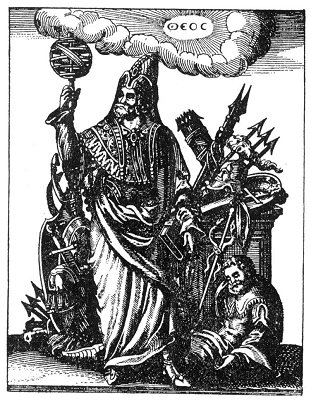
- Author of the Corpus Hermeticum, sacred texts that provide the basis for a spiritual, philosophical, and magical tradition called Hermeticism
- A legendary figure who might be a representation of combination of Greek god Hermes and Egyptian god Thoth
- Both were gods of writing and magic, and also were psychopomps, who guided souls to the afterlife
- Hermeticism greatly influenced the Renaissance and Reformation
- The tradition descends from a doctrine that affirms the existence of a single, true theology present in all religions
- The “thrice great” references that he knew the three parts of the wisdom of the whole universe: 1. Alchemy, 2. Astrology, and 3. Theurgy
- The “hermetic tradition” refers to alchemy, magic, astrology, and the texts are divided into two categories: the philosophical and the technical hermetica. The former pertains to philosophy and the latter to magic, potions, and alchemy.
Ostanes
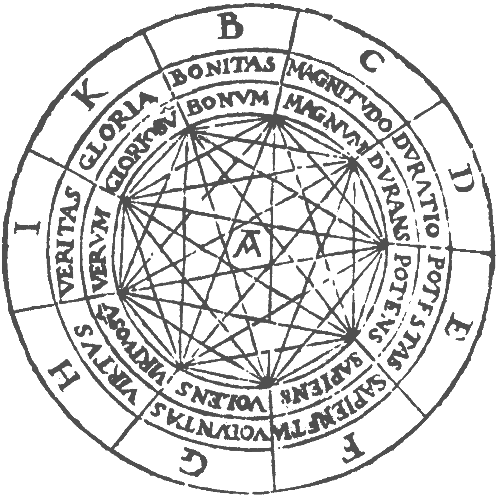
- A pen name used by several pseudo-anonymous authors of Greek and Latin works beginning in the Hellenistic period
- From Persia
- Imagined to be a master sorcerer, a magus/mage, on top of being an alchemist
- First mentioned the Elixir of Life and the Philosopher’s Stone
- A teacher of Alexander the Great
Nicolas Flamel
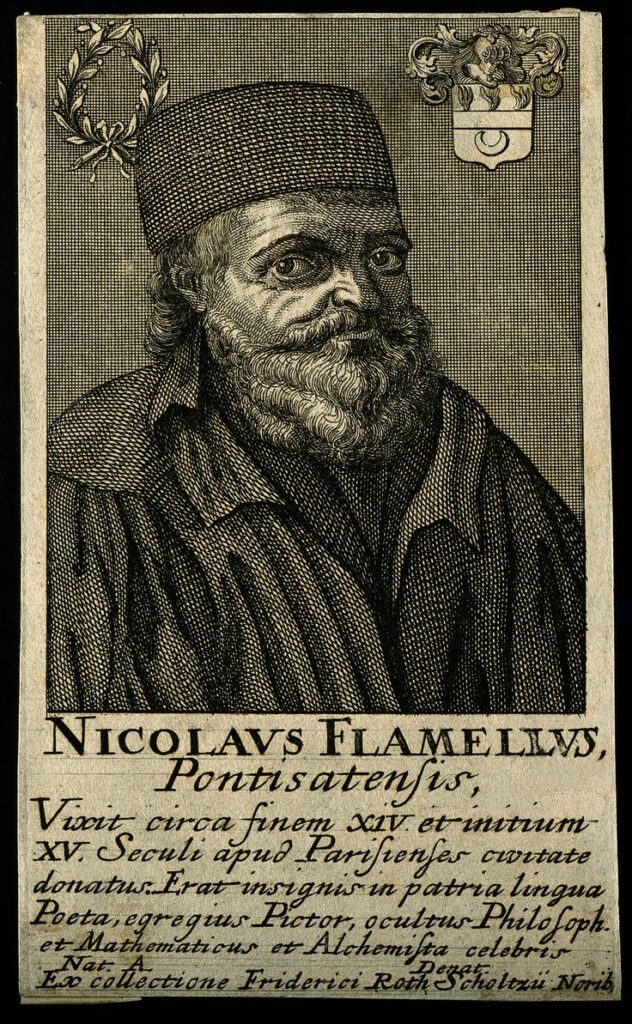
- A French scribe and manuscript-seller and husband to Perenelle Flamel
- Believed to have discovered the Philosopher’s Stone and achieved immortality
- Supposedly learned alchemical secrets on the road to Santiago de Compostela
- He designed his own tombstone, which features carved symbols and images of Chris, St. Peter, and St. Paul. It is on display at the Musée de Cluny.
- His is reputed to have succeeded at the two goals of alchemy: using the Philosopher’s Stone to turn base metals into gold and achieving immortality with the Elixir of Life
Perenelle Flamel
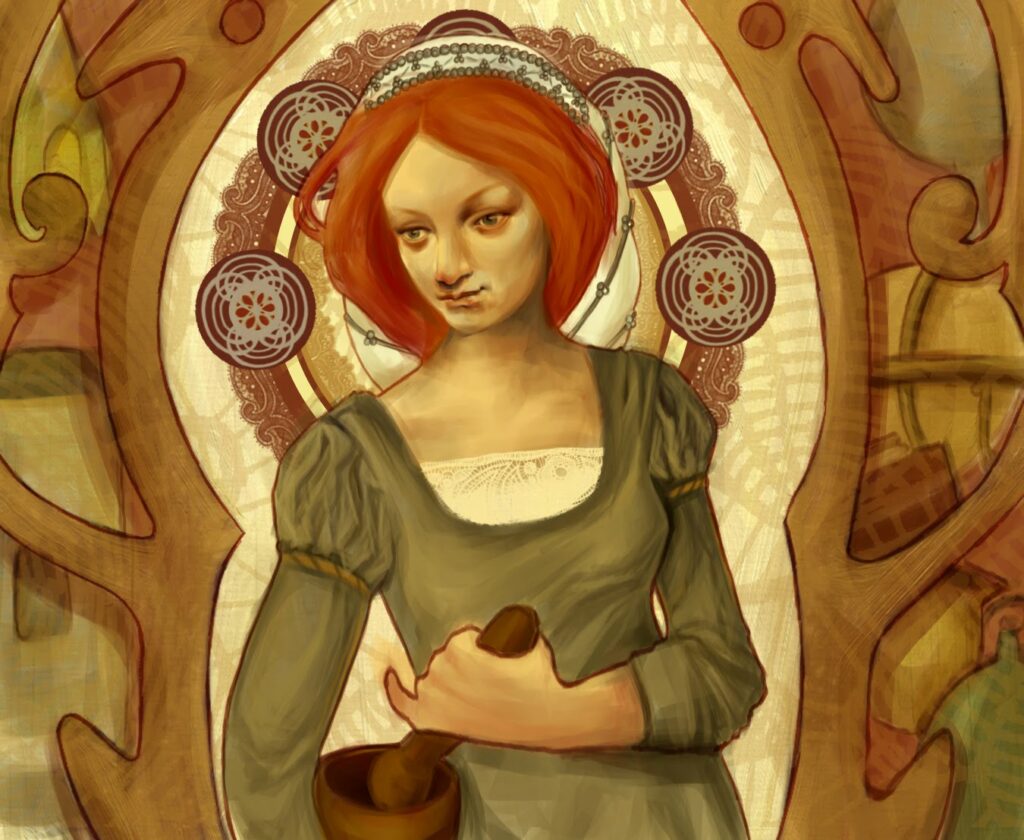
- Wife of Nicolas Flamel
- Had money from two previous husbands
- Generous benefactor, investing in churches and hostels and commissioned religious sculptures
Jabir ibn Hayyan (“Geber”)
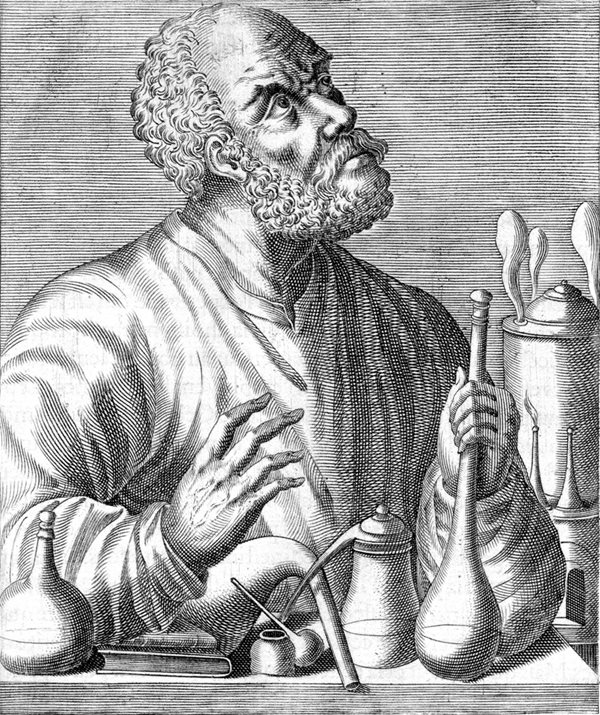
- Popularized the idea of the Philospher’s Stone to combine mercury and sulfur to make gold
- Took a rational approach to his lab procedures and chemical operations while practicing alchemy
- He was also an astronomy, astrologer, engineer, geographer, philosopher, physicist, pharmacist, and physician
- The word “gibberish” is derived from his name
Isaac Newton
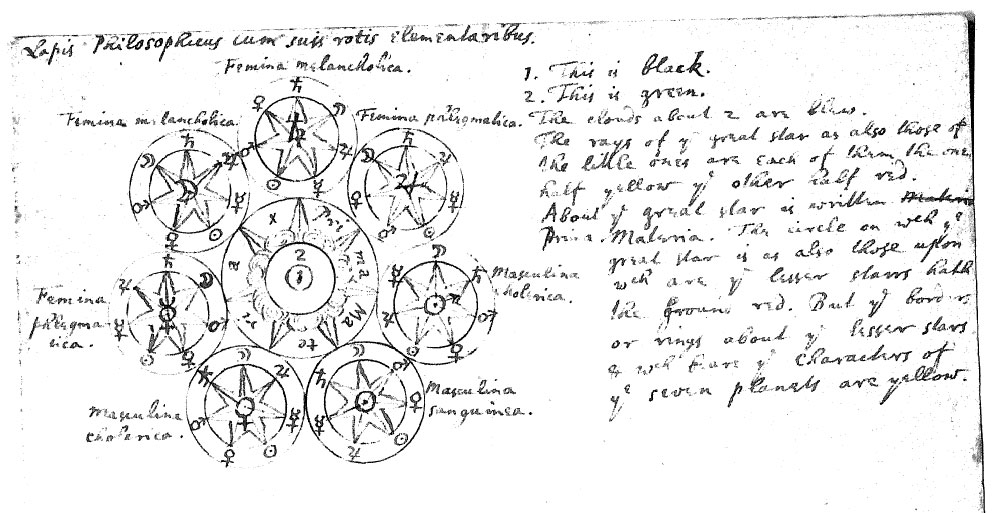
- Besides studying physics and math, he spent time on alchemy
- He may have deliberately left his writing on alchemy unpublished out of fear of punishment and scrutiny by the scientific community (and also because he was a perfectionist)
- Newton was on a quest to find the Philosopher’s Stone
- It’s said that he was not the “first of the age of reason but that he was the last of the magicians.”


